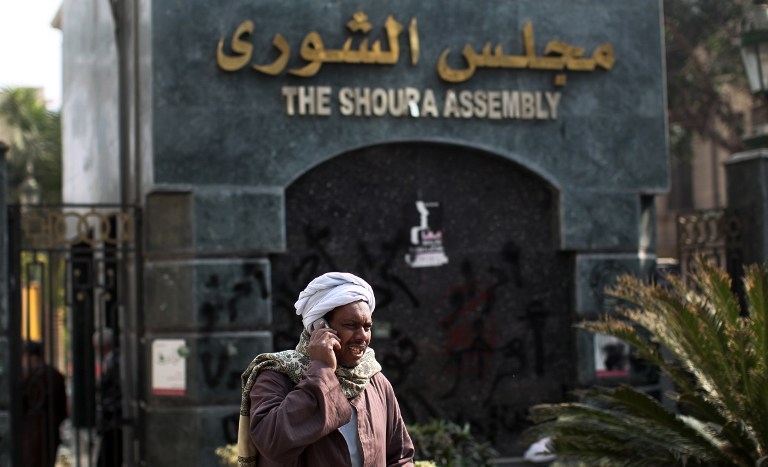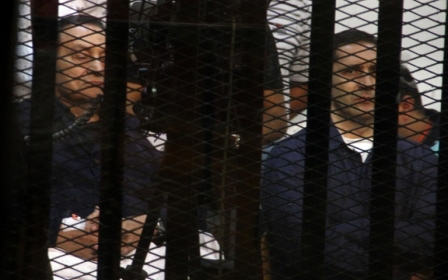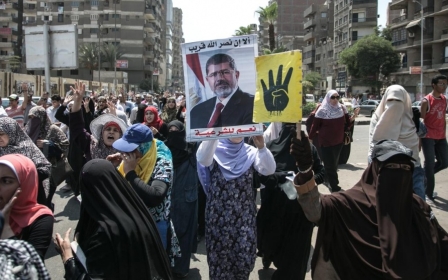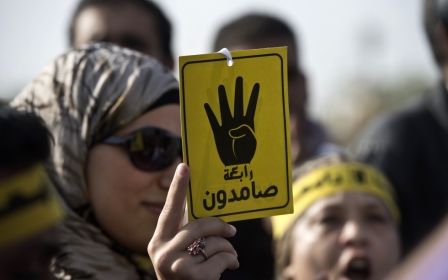First Egyptian parliamentary alliance formed before elections

The first electoral alliance to contest Egypt's upcoming parliamentary elections was formed on Sunday by several political groups, local Egyptian media reported.
The Egyptian Front Coalition, an alliance which includes leftist and liberal parties established during the ousted president Hosni Mubarak’s rule – the Tagamoa Party and the Ghad Party as well as the Egyptian National Movement Party founded by Mubarak's last prime minister and former 2012 presidential candidate Ahmed Shafiq.
The coalition also includes the Egypt My Country Front led by prominent former MP Mostafa Bakry as well as other emerging parties such as the People's Republican Party.
The coalition announced in a statement that it will advocate a programme which will oblige its MPs to safeguard social justice and decrease the gap between rural and urban Egypt, eliminate bureaucracy and corruption in all its forms and guarantee transparency and governmental oversight and the rejection of cronyism, reported MENA.
According to its statement, the coalition also aims to establish public freedoms, decentralise Egypt's government, eradicate homelessness, advance the industrial, agriculture and technological sectors and provide services for the disabled, MENA news agency reported. .
Egypt's new parliament – the House of Representatives – will be composed of 567 deputies. Seventy-five percent of seats (420) will be allocated to independent candidates, with a mere 20 percent (120 seats) reserved for party-based candidates. The remaining five percent (27 seats) will be appointed by the President.
The Supreme Electoral Commission has not yet announced the exact date of the parliamentary vote, but political analysts expect it to be held at the end of October.
The upcoming parliamentary elections are scheduled to take place with a near complete absence of Islamist parties and coalitions, which achieved sweeping victories during parliamentary polls in 2011 and 2012.
The Democratic Alliance for Egypt led by the Muslim Brotherhood’s Freedom and Justice Party won 46% of the People’s Assembly elections in 2011 while the Salafist-led Islamist bloc won 25% of the seats.
In a similar swift victory, the 2012 Shura Council elections saw 58% of the seats taken by the Muslim Brotherhood-led alliance while the Salafist bloc managed to occupy 25% of the seats.
The Islamist-dominated parliament was dissolved by Egypt’s highest court two days before the second round of the 2012 presidential elections which brought Mohamed Morsi into power.
The supreme constitutional court had also authorised the army-backed presidential candidate, Shafiq – now founder of the Egyptian National Movement Party, member of the newly formed coalition – to stay in the final leg of the race.
The court decision was seen as a double blow for the Muslim Brotherhood causing the movement to lose its power base in parliament.
New MEE newsletter: Jerusalem Dispatch
Sign up to get the latest insights and analysis on Israel-Palestine, alongside Turkey Unpacked and other MEE newsletters
Middle East Eye delivers independent and unrivalled coverage and analysis of the Middle East, North Africa and beyond. To learn more about republishing this content and the associated fees, please fill out this form. More about MEE can be found here.




